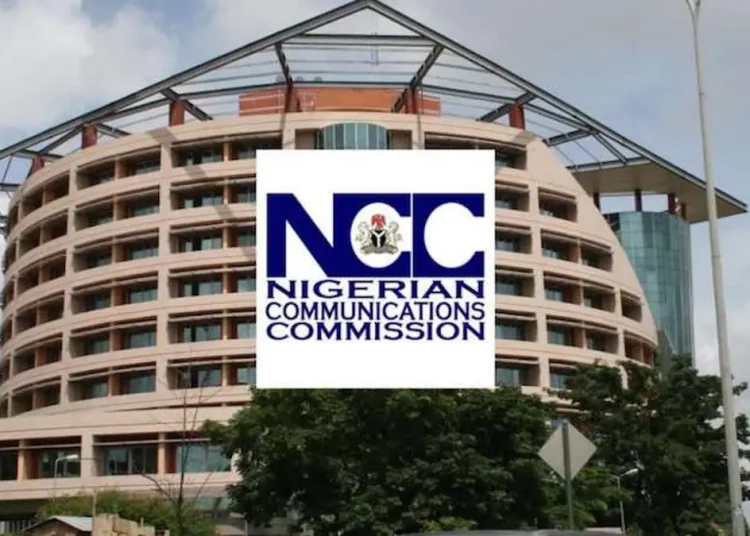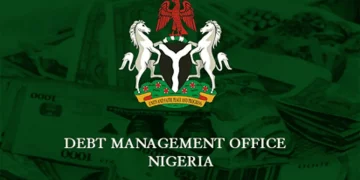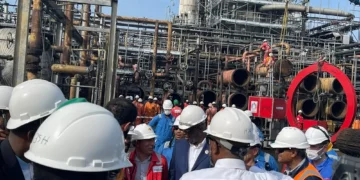The Nigerian Communications Commission (NCC) has strongly condemned the flagrant violations of regulatory provisions by Information and Communications Technology (ICT) operators.
In response to ongoing non-compliance and persistent quality of service failures, the Commission has drafted stiffer, non-monetary sanctions to hold erring operators accountable.
NCC’s executive vice chairman, Dr. Aminu Maida, issued the warning amid widespread service lapses, including frequent outages, equipment malfunctions, and poor infrastructure maintenance by telecom tower companies and other ICT service providers. These violations undermine the quality of Internet and voice services and threaten Nigeria’s growing digital economy.
Investigation shows that companies were unmoved by financial sanctions, violating regulatory provisions unabated and effortlessly paying the fine. Insider sources revealed that some companies even made monetary provisions for the fine in their annual financial statements, a move that the industry regulator, the Nigerian Communications Commission (NCC), frowned on.
The NCC said the move was to demonstrate further its prioritisation of compliance over financial gains in regulatory oversight. Hence, the Commission is planning a review of its Enforcement Processes Regulations (EPR) 2019, which stipulates monetary fines for violations.
A consultation paper signed by the commission’s executive vice chairman/CEO, Dr. Aminu Maida, sighted by LEADERSHIP at the weekend, shows that the commission is considering asymmetric sanctions. In this system, the sanctions imposed on smaller and bigger players for committing similar infractions are different to ensure industry sustainability, among other things.
Among the five regulatory proposals being put forward by the commission ahead of the activation of its rule-making process for the review of its ERP, 2029, as enshrined in Section 71 of the Nigerian Communications Act (NCA), 2023, is the possibility of implementing alternative mechanisms in the form of non-monetary sanctions on erring licensees.
The regulator also provides the basis for each of the five regulatory proposals, which provide a broad outline of the proposed review and show the foundational basis for the regulatory thought process. It has also invited comments from stakeholders that will help shape the specific changes and amendments that the Commission will put forward when it activates the rule-making process later in the third quarter of 2025.
The commission proposes “to set non-monetary administrative measures restricting certain licensing privileges and benefits. Hence, the Commission will enforce non-monetary administrative measures on infractions related to licensing conditions, interconnection indebtedness and similar non-complying conduct of licensees.”
According to Maida, this Regulatory Proposal aims to redirect the focus of administrative sanctions from financial fines to other administrative measures and regulatory actions. This deviation will enable the NCC to rely on alternative approaches to deepening compliance and deploy effective enforcement measures to deter licensees.
According to him, the second proposal is “to set liability for emerging and corrosive conducts such as call masking, call refiling and SIM Boxing. This Regulatory Proposal intends to widen both criminal and administrative liabilities related to offences and infractions related to interconnection, call termination and call manipulation by licensees and non-licensees.”
NCC said these measures will be tied to the powers vested in the Commission by Section 70 of the Act to issue regulations on matters related to ‘communications offences.’
The third proposal by the regulator is to clarify general and specific administrative fines in the EPR, 2019.
On the regulatory thought process behind this third proposal, Maida said in the consultation paper, “This Regulatory Proposal is intended to provide clarity on general and specific administrative fines in Regulations 15 and 16 of the Enforcement Processes Regulations 2019.”
In addition, Maida added, “This will entail a review and detailed amendment of the Schedule of the Regulations that itemises the different breaches and their related fines. It will also remedy the identified shortcomings highlighted by the outcome of the Regulatory Impact Assessment (RIA) conducted in 2024 on the legislation.”
The fourth proposal being put forward to key stakeholders on the EPR 2019 proposed review is to outline administrative and liability measures against the Board and Management of Licensees that perennially breach the Nigerian Communications Act 2003 provisions and relevant subsidiary legislations.
Based on the fourth regulatory proposal, Maida said, it was aimed at reviewing the provisions of Regulation 18 of the Enforcement Processes Regulations 2019. “The Proposal expects a more detailed provision that sets administrative measures and regulatory actions that can affect the management and board of licensees’ existence, composition and activities. The Proposal will provide details and qualifying instances when the Commission can invoke the provisions of Regulation 18,” he pointed out.
According to the commission in the consultation paper, the fifth regulatory proposal outlines measures that will enable the Commission to enforce asymmetric administrative and liability measures in the Nigerian Communications Sector to ensure sustainability.
The commission said that the fourth regulatory proposal is intended to rely on asymmetry benchmarks in outlining fines and enforcement actions, and the benchmark will consider the size of licensees. “This is to ensure sustainability and focuses on enforcement measures that will not create existential challenges for smaller and medium-sized licensees. While an exemption will not be provided, the quantum and nature of measures will be implemented asymmetrically. This Proposal will also remedy the identified shortcomings,” he added.
Recall that the Commission’s ERP was first issued in 2009 and reviewed in 2019. The Regulations provide prescriptions for imposing liabilities and administrative sanctions for breaches of the Nigerian Communications Act 2003 provisions, its subsidiary legislations, licensing conditions, permits and the Commission’s directions. The Regulations provide for general and specific sanctions itemised in its Schedule and outlined against each identified infraction.
In 2024, the Commission conducted an RIA on the implementation of the Regulations since its last review in 2019 and also assessed its impact on the Nigerian Communications Sector. The outcome of the RIA sets out areas that will require changes and amendments.
First, sampled respondents within the Sector raised concerns about the lack of clarity on the grounds for enforcement and procedures for determining such enforcement. Second, some licensees cited the lack of clarity on general and specific fines, and another set recommended less reliance on penalties.
Thirdly, some sampled licensees stated that fines and administrative measures need to be fair and sustainable to avoid crippling smaller licensees. Lastly, there are also comments on the need to encourage compliance in the Sector, without relying on adverse regulatory measures, such as financial sanctions.





